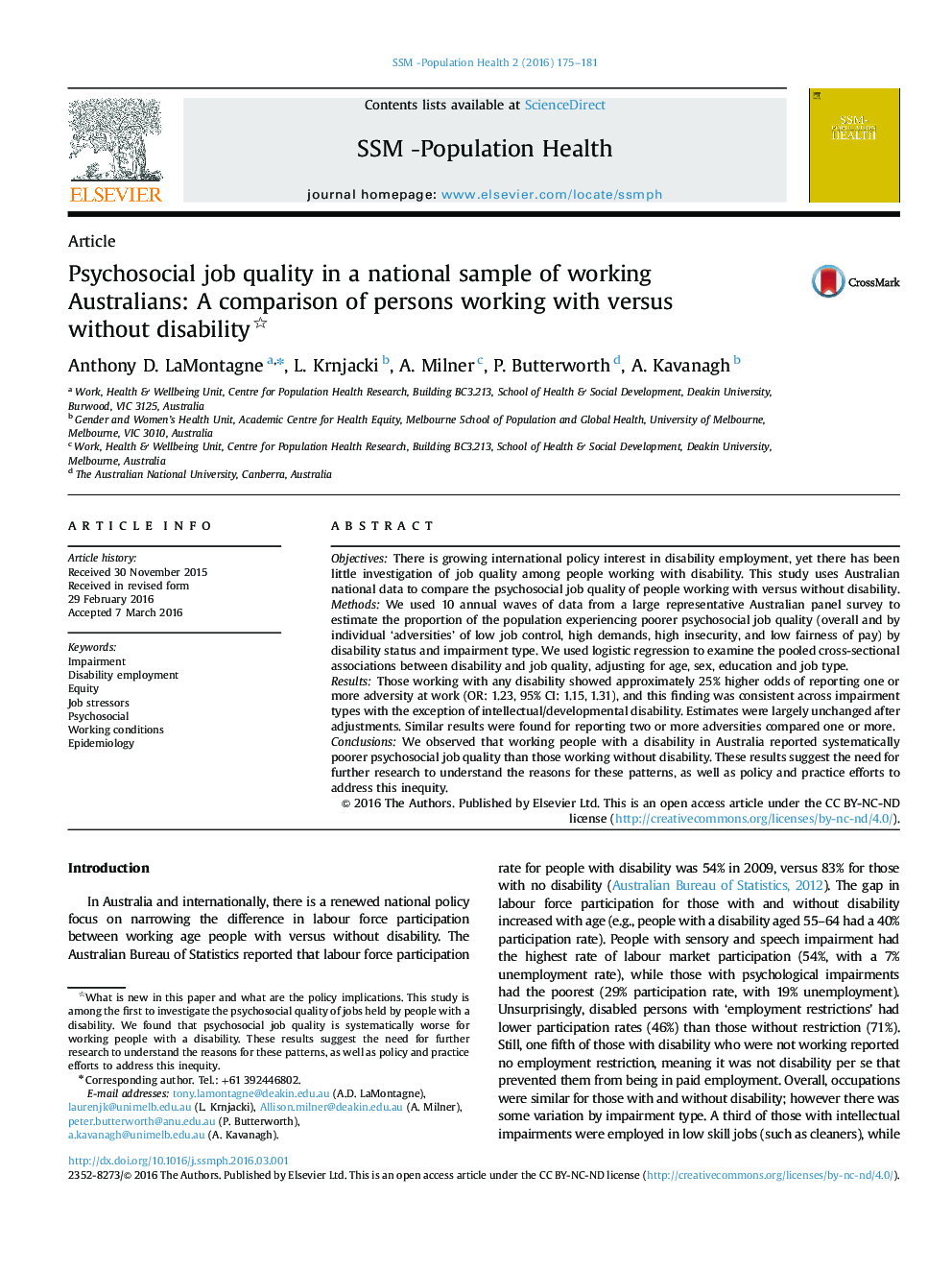| Article ID | Journal | Published Year | Pages | File Type |
|---|---|---|---|---|
| 1092320 | SSM - Population Health | 2016 | 7 Pages |
•This study found that psychosocial job quality is systematically worse for people with disabilities.•Those working with any disability showed approximately 25% higher odds of reporting one or more adversity at work.•These findings were consistent across impairment types with the exception of intellectual/developmental disability.•These results suggest the need for further research to understand the reasons for these patterns, as well as policy and practice efforts to address this inequity.
ObjectivesThere is growing international policy interest in disability employment, yet there has been little investigation of job quality among people working with disability. This study uses Australian national data to compare the psychosocial job quality of people working with versus without disability.MethodsWe used 10 annual waves of data from a large representative Australian panel survey to estimate the proportion of the population experiencing poorer psychosocial job quality (overall and by individual ‘adversities’ of low job control, high demands, high insecurity, and low fairness of pay) by disability status and impairment type. We used logistic regression to examine the pooled cross-sectional associations between disability and job quality, adjusting for age, sex, education and job type.ResultsThose working with any disability showed approximately 25% higher odds of reporting one or more adversity at work (OR: 1.23, 95% CI: 1.15, 1.31), and this finding was consistent across impairment types with the exception of intellectual/developmental disability. Estimates were largely unchanged after adjustments. Similar results were found for reporting two or more adversities compared one or more.ConclusionsWe observed that working people with a disability in Australia reported systematically poorer psychosocial job quality than those working without disability. These results suggest the need for further research to understand the reasons for these patterns, as well as policy and practice efforts to address this inequity.
